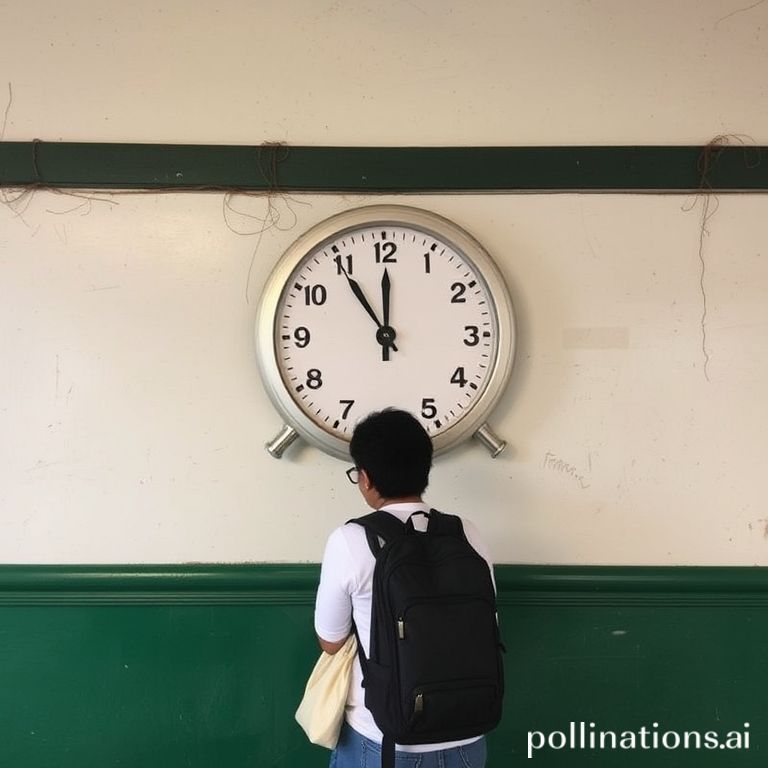Navigating the nuances of a new culture is always an adventure, filled with delightful surprises and, occasionally, perplexing moments. One aspect that often stands out for visitors to Mexico is the concept of time. While many cultures place a high value on strict punctuality, Mexico often operates on a more relaxed schedule. The word “mañana,” which literally translates to “tomorrow,” is a prime example. However, its meaning can be far more flexible than a simple 24-hour delay. Understanding this cultural difference is key to avoiding frustration and embracing the laid-back charm of Mexican life.
This isn’t to say that Mexicans are inherently late or disrespectful of others’ time. Rather, it reflects a different cultural perspective where relationships and enjoying the present moment often take precedence over rigid schedules. Learning to interpret the subtle cues and unspoken understandings surrounding time is an essential part of immersing yourself in Mexican culture.
The Meaning of Mañana
The word “mañana” is a cornerstone of the Mexican approach to time. While it directly translates to “tomorrow,” its actual meaning can be quite fluid. It could indeed mean tomorrow, but it might also signify “sometime in the future,” “later,” or even “not at all.” Understanding the context in which it’s used is crucial.
Context is Key
- Informal Settings: In casual settings, like meeting friends for coffee, “mañana” often indicates a relaxed timeframe. It’s understood that there’s flexibility and a slight delay is acceptable.
- Work Environments: In professional contexts, “mañana” usually implies a more concrete commitment to the next day, although it’s still wise to confirm details.
- “Ahorita”: Another common term is “ahorita,” which translates to “right now” or “in a little bit.” However, like “mañana,” its actual meaning can vary widely. It could mean anything from a few minutes to a few hours.
Why the Relaxed Approach to Time?
Several factors contribute to Mexico’s more fluid perception of time. These are rooted in historical, social, and cultural values.
Emphasis on Relationships
In many Latin American cultures, personal relationships are highly valued. Spending time connecting with people is often prioritized over strict adherence to schedules. Interruptions for conversations, greetings, or brief social interactions are common and considered polite, even if they cause delays.
The “Present Moment” Philosophy
There’s a strong emphasis on living in the present moment. Worrying about the future or rigidly sticking to schedules can be seen as detracting from the enjoyment of the here and now. This “go with the flow” attitude contributes to a more relaxed approach to time.
Historical Influences
Some historians suggest that historical factors, such as agricultural cycles and the importance of community cooperation, have shaped the Mexican perception of time. These influences fostered a more collective and less individually driven sense of urgency.
Tips for Navigating Punctuality in Mexico
While embracing the relaxed pace of life is a wonderful part of experiencing Mexican culture, it’s also helpful to have some practical strategies for navigating punctuality:
- Confirm Details: Always double-check meeting times and locations, especially for important appointments.
- Add Buffer Time: Pad your schedule with extra time to account for potential delays.
- Communicate: If you’re running late, send a quick message to let the other person know.
- Be Patient: Practice patience and try to avoid getting frustrated by delays. Remember that it’s often unintentional.
- Embrace the Culture: Try to adopt a more relaxed attitude towards time yourself. You might find that it reduces stress and allows you to appreciate the present moment more fully.
Accepting and Adapting
Ultimately, understanding and adapting to the Mexican concept of time is about embracing a different cultural perspective. It’s about recognizing that punctuality is not always the highest priority, and that relationships and enjoying the present moment are equally, if not more, important.
Conclusion
The concept of “mañana” in Mexico goes far beyond its literal translation. It embodies a cultural approach to time that prioritizes relationships, the present moment, and a more relaxed pace of life. By understanding the nuances of this cultural difference and adopting a flexible mindset, you can avoid frustration and fully embrace the beauty and charm of Mexico. So, the next time you hear “mañana,” remember that it might mean tomorrow, but it also might mean something more – a reminder to slow down, connect with others, and savor the moment.
If you enjoyed this article, don’t forget to explore more inspiring stories on Life in Mexico!
IMAGE: A warmly lit outdoor cafe scene in Oaxaca, Mexico. A woman with a friendly smile is talking to a local artisan who is showing her handcrafted jewelry. The mood is relaxed and inviting, with a focus on connection and cultural exchange. Colors are vibrant with traditional Mexican textiles and pottery in the background. The style should be realistic and capture the authentic feel of daily life in Mexico.


